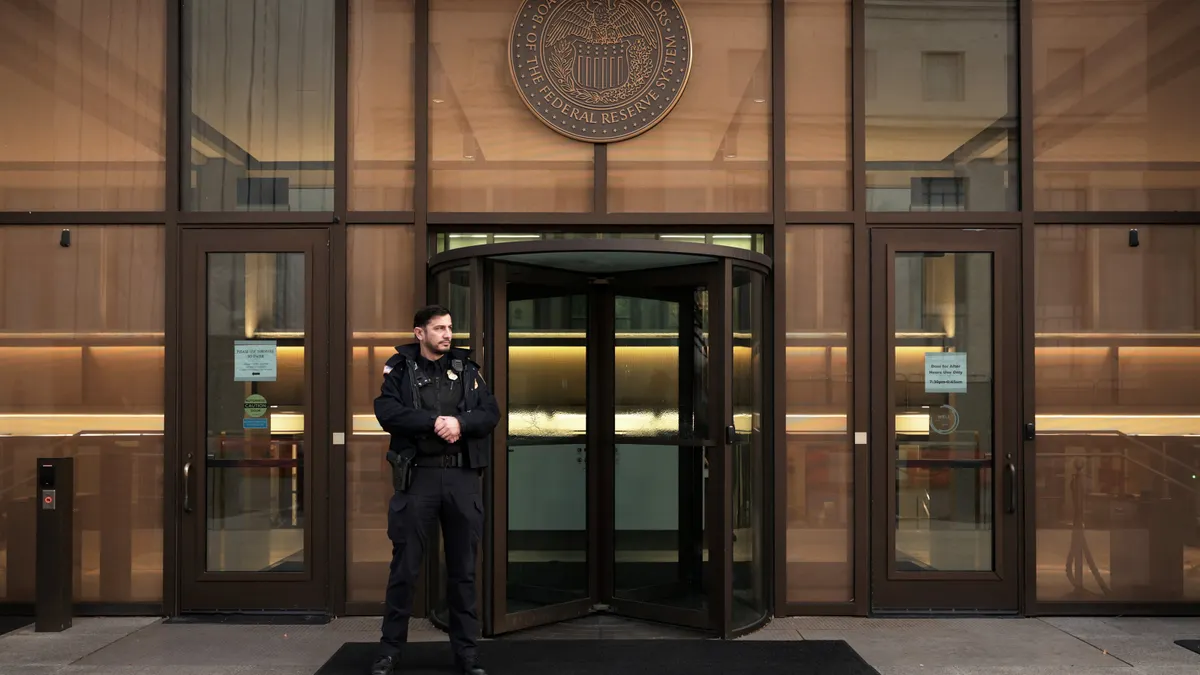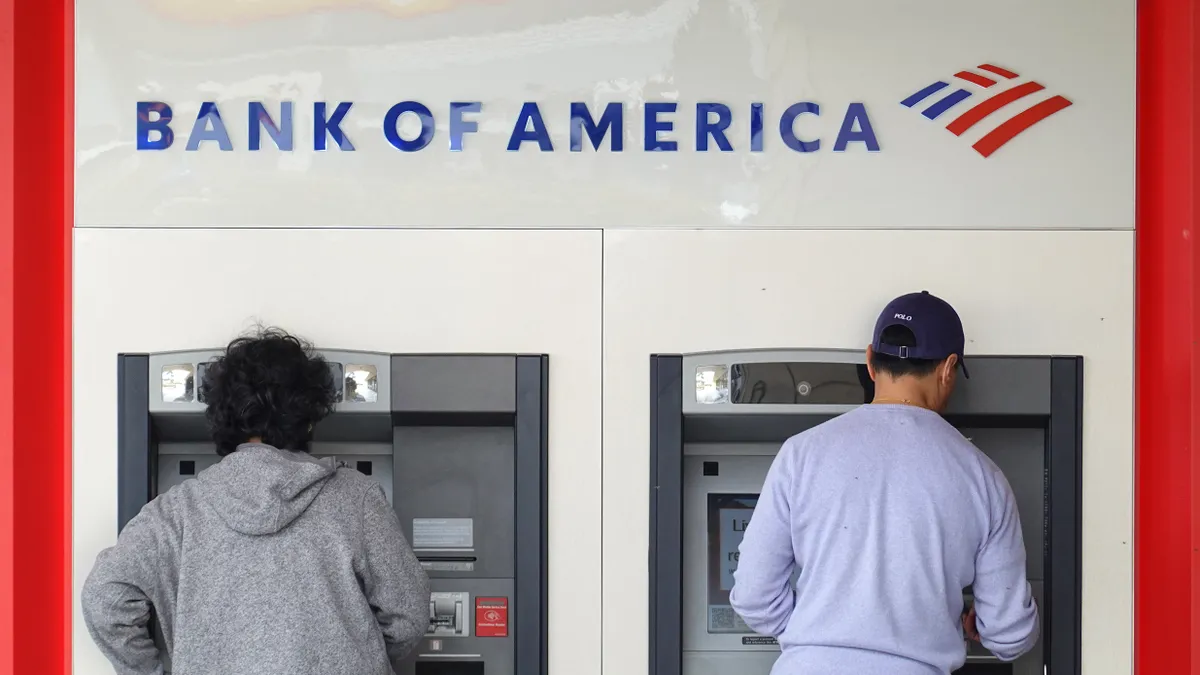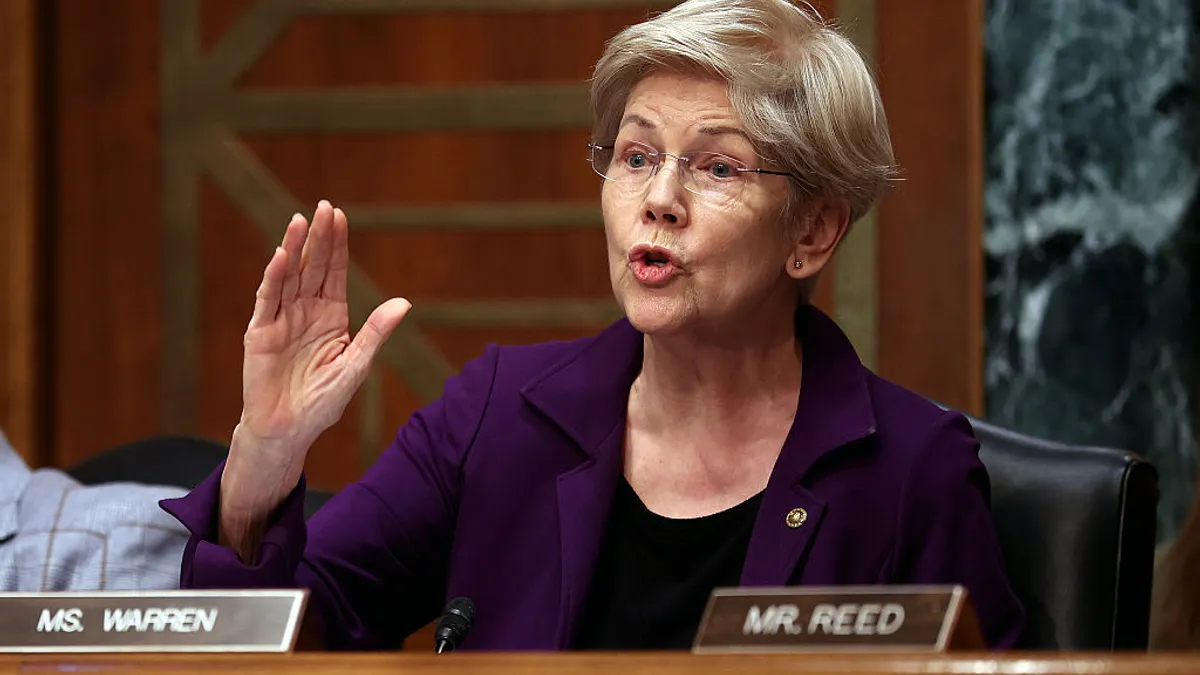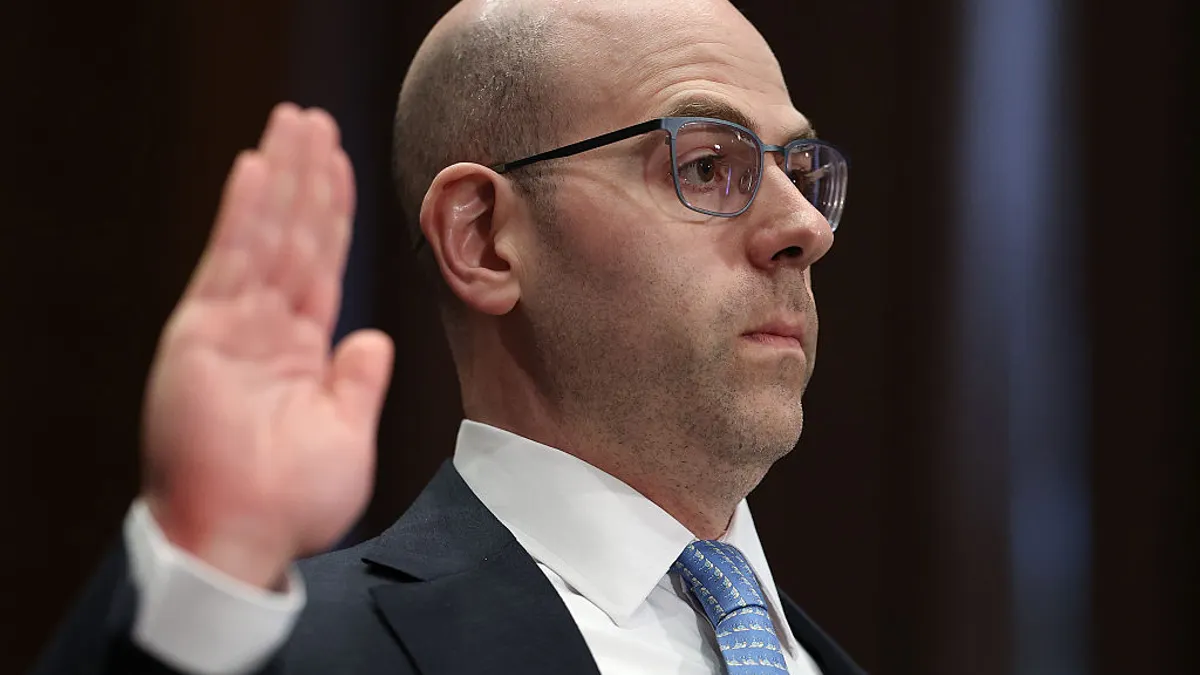The Consumer Financial Protection Bureau is preparing to file an adversary proceeding complaint against now-bankrupt Synapse Financial Technologies, alleging unfair acts or practices and failure to maintain adequate records of consumer funds.
Since a June 27 hearing, Synapse's Chapter 11 trustee, former Federal Deposit Insurance Corp. Chair Jelena McWilliams, and her team have been meeting with the CFPB, responding to queries and providing the requested data and records to support the bureau’s investigation, she said in an update filed Thursday.
“Specifically, the Bureau plans to allege that Synapse failed to maintain adequate records of the location of consumers’ funds and failed to ensure those records matched the records maintained by the partner banks, causing consumers to lose access to their funds, an estimated $60-90 million of which still have not been recovered,” McWilliams wrote Thursday.
The court document noted that McWilliams and the CFPB are negotiating a proposed stipulated final judgment that would include “nominal monetary penalties,” which they’ll seek a judge’s approval of.
The CFPB has indicated that continuing the case — in either Chapter 11 or Chapter 7 bankruptcy filing – would expedite its investigation and judgment process, compared to dismissal of the case.
In June, the CFPB filed a statement of interest that supported converting the case to Chapter 7 rather than dismissing it, as it would better serve consumers who haven't been fully compensated. The bureau claimed that hundreds of consumers, who were end users of the fintech platforms that used Synapse’s systems, have filed complaints with the CFPB, saying their accounts were frozen and they have received only a fraction of their funds.
“The Bureau has a strong interest in pursuing its claim because it has a mechanism to potentially make victims whole without payment from Debtor’s estate,” the CFPB said in the June court document.
After a final judgment, the CFPB's subsequent work – including potentially accessing its civil penalty fund to compensate affected users – would not depend on an active bankruptcy case, McWilliams noted in her latest statement.
A hearing on the conversion motion is scheduled for Monday.
According to the CFPB, since 2010, $3.3 billion in CPF payments have been made to eligible consumers, while $3.7 billion has been collected into the fund. As of Sep. 30, 2024, the CPF had an unallocated balance of $118.9 million in funds that have been collected and are not allocated for administrative purposes.
When middleware provider Synapse filed for bankruptcy in April 2024, more than 100,000 consumers’ funds were frozen, cutting off access to around $265 million in deposits. To date, many consumers still wait to be made whole since Synapse, Evolve Bank and fintechs involved did not maintain accurate ledgers tracking who the money belonged to and where it was held, which led to “gross mismanagement” of funds.
Synapse partnered with fintech companies like Yotta, Juno, Mercury and Copper and insured banks like Evolve, Lineage Bank, American Bank and AMG National Trust. The middleware fintech helped manage the transfer of funds and the maintenance of records between the fintech apps and the banks where those funds would be ultimately stored.
In June, GlassRatner Advisory Services facilitated Evolve's access to data stored in Synapse’s Amazon Web Services environment, according to a court document..
On July 31, Evolve's counsel informed McWilliams that Ankura and Evolve had finished the data copying process and a complete copy of Synapse's AWS data was stored in an Evolve-controlled AWS environment. Ankura is an independent third-party expert, providing accounting and data analysis services to help Evolve navigate the complex situation stemming from the Synapse bankruptcy.
On Wednesday, Evolve filed a stipulation establishing an agreement between McWilliams and the bank and providing for Evolve's continued maintenance of Synapse’s AWS data beyond the final disposition of the case.
Evolve declined to comment.



















